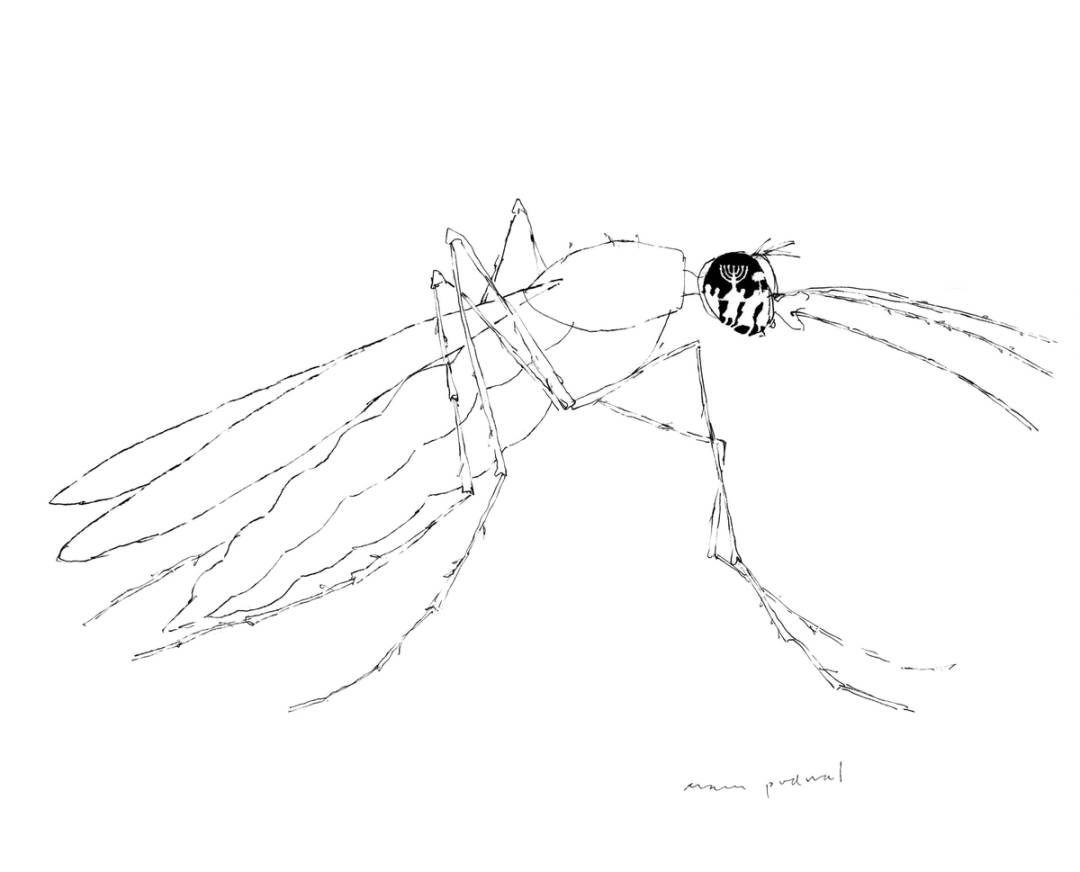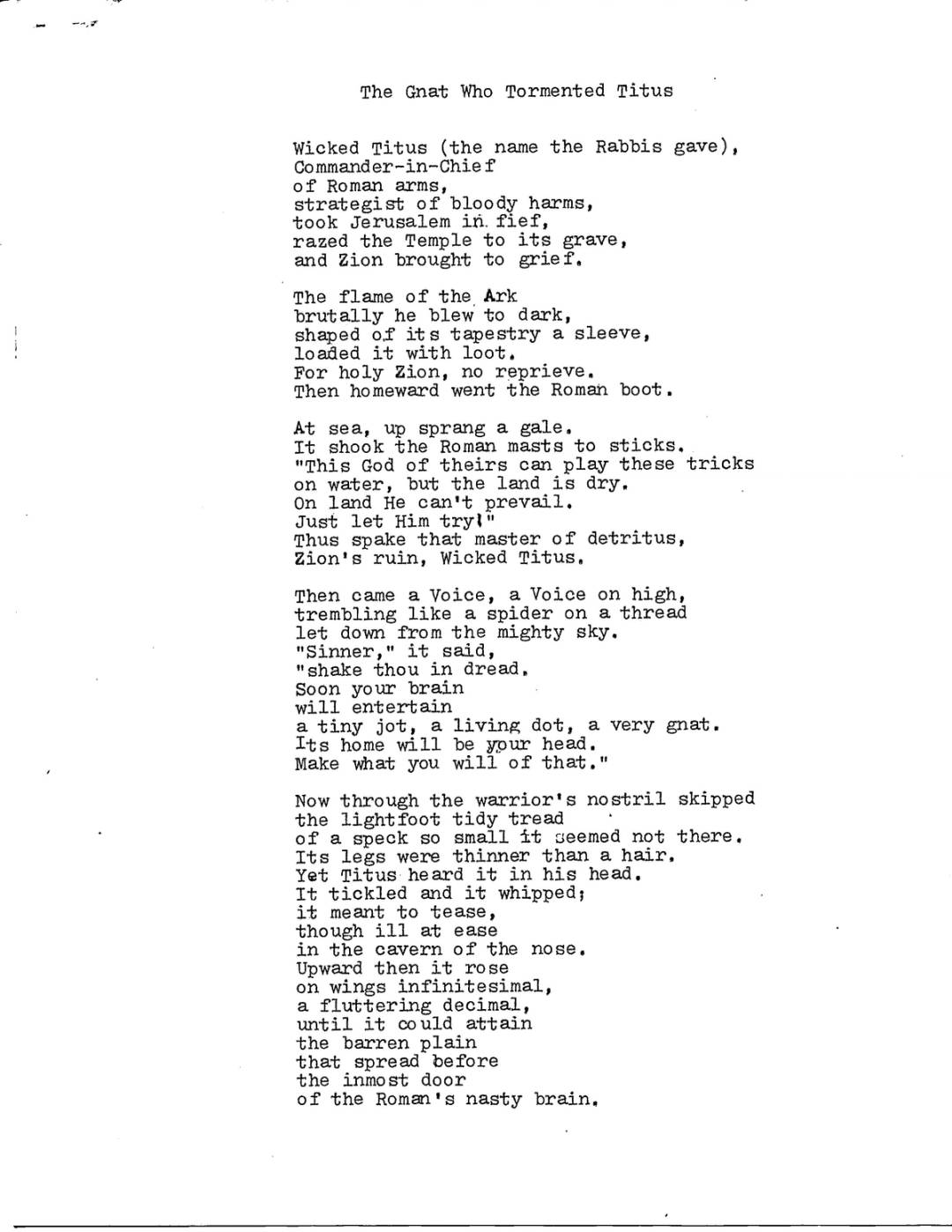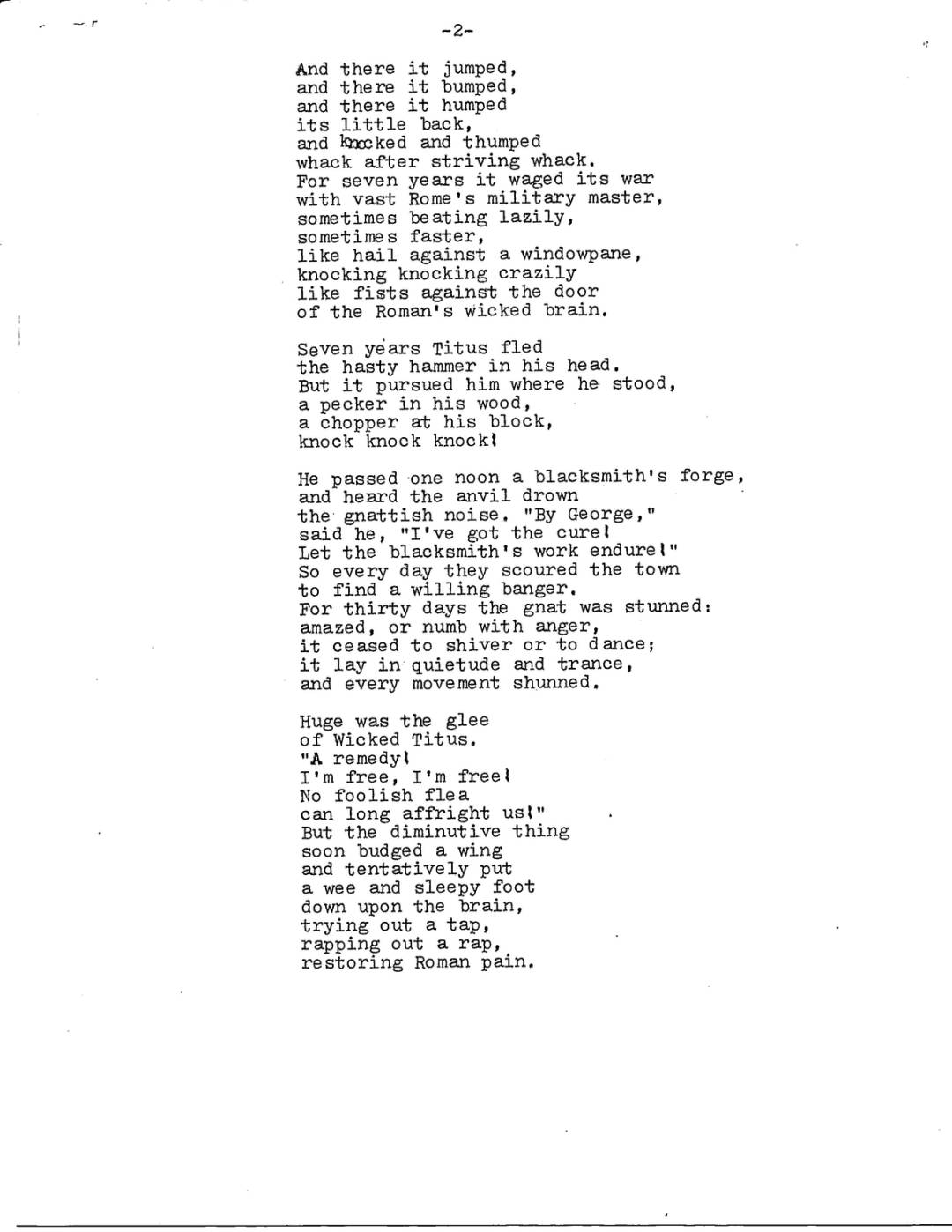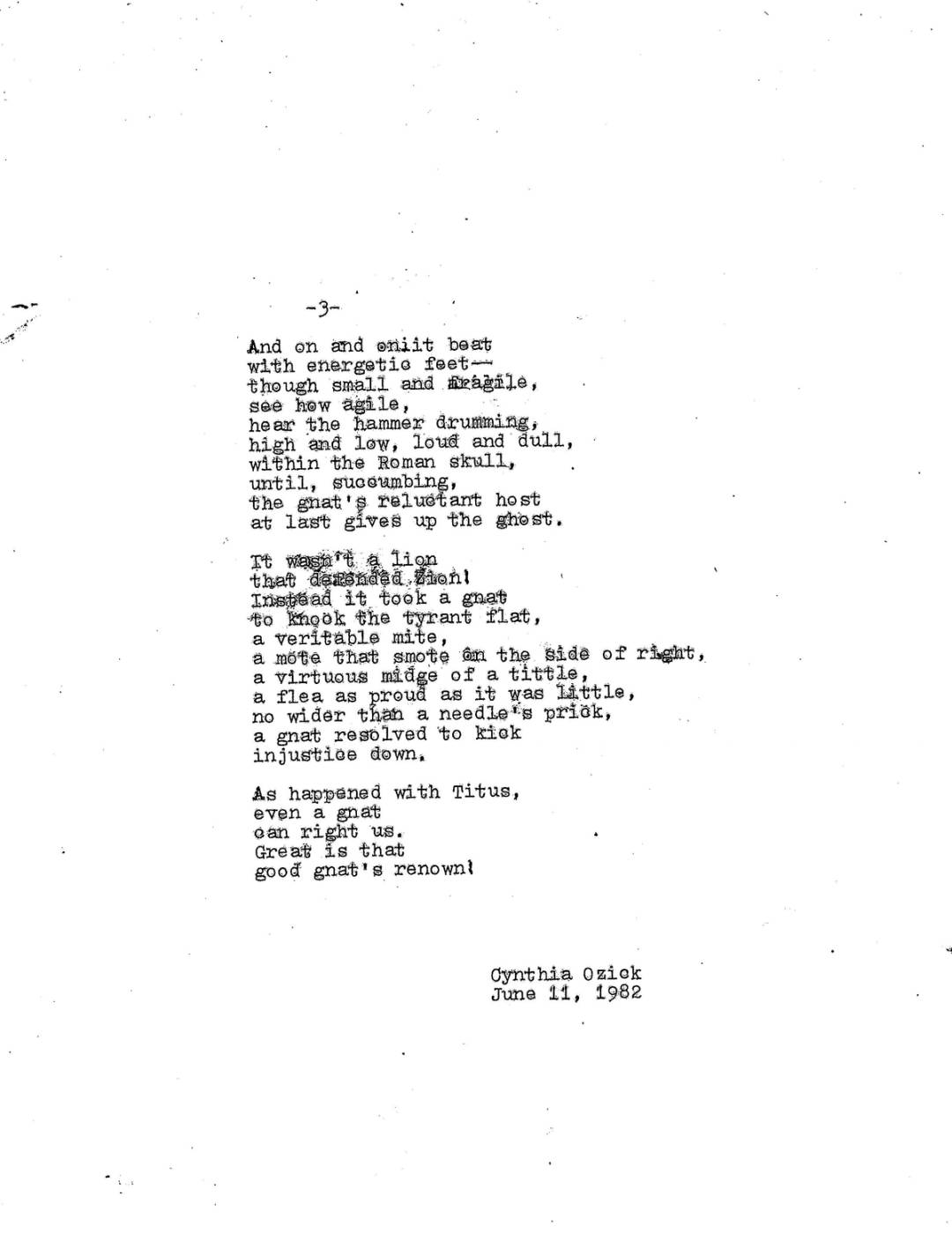
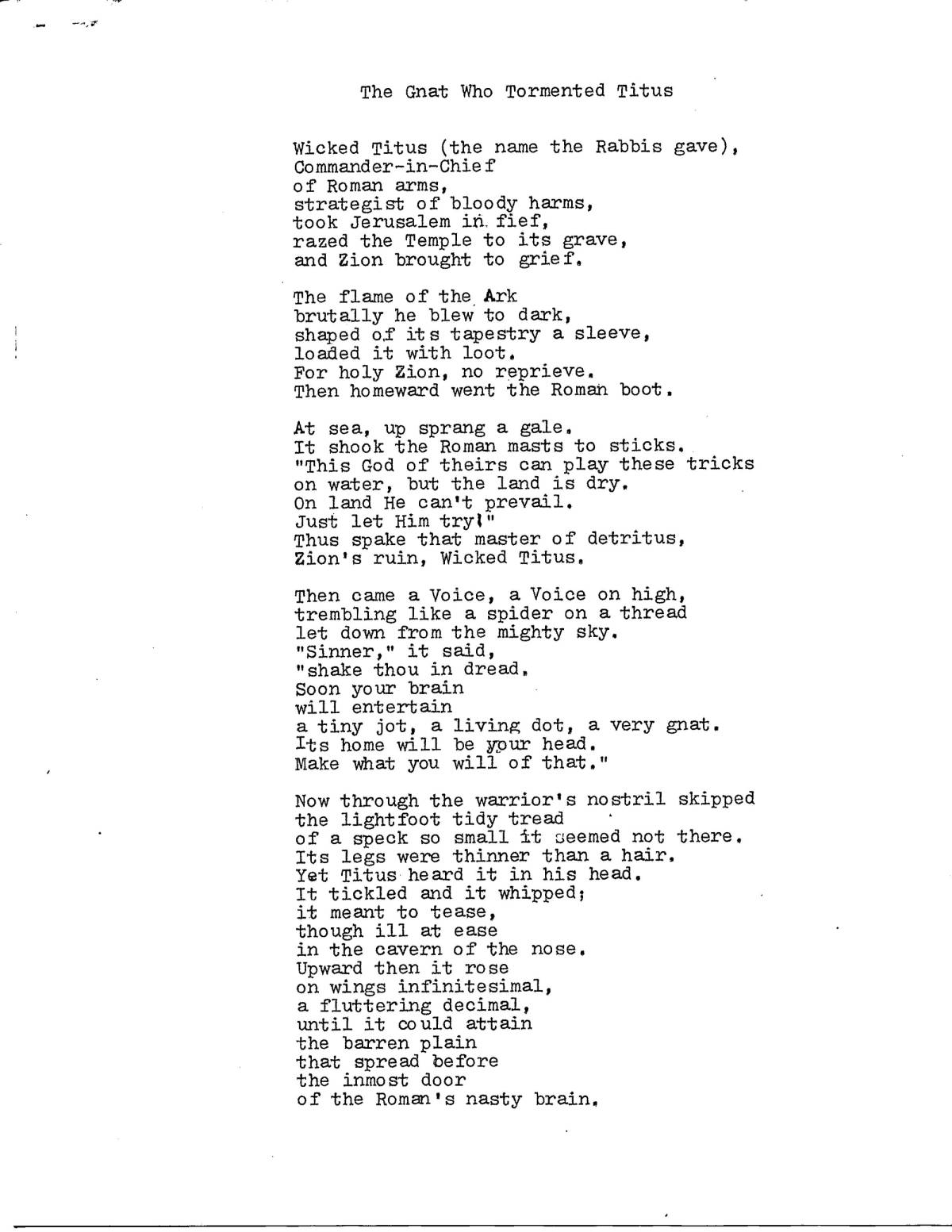
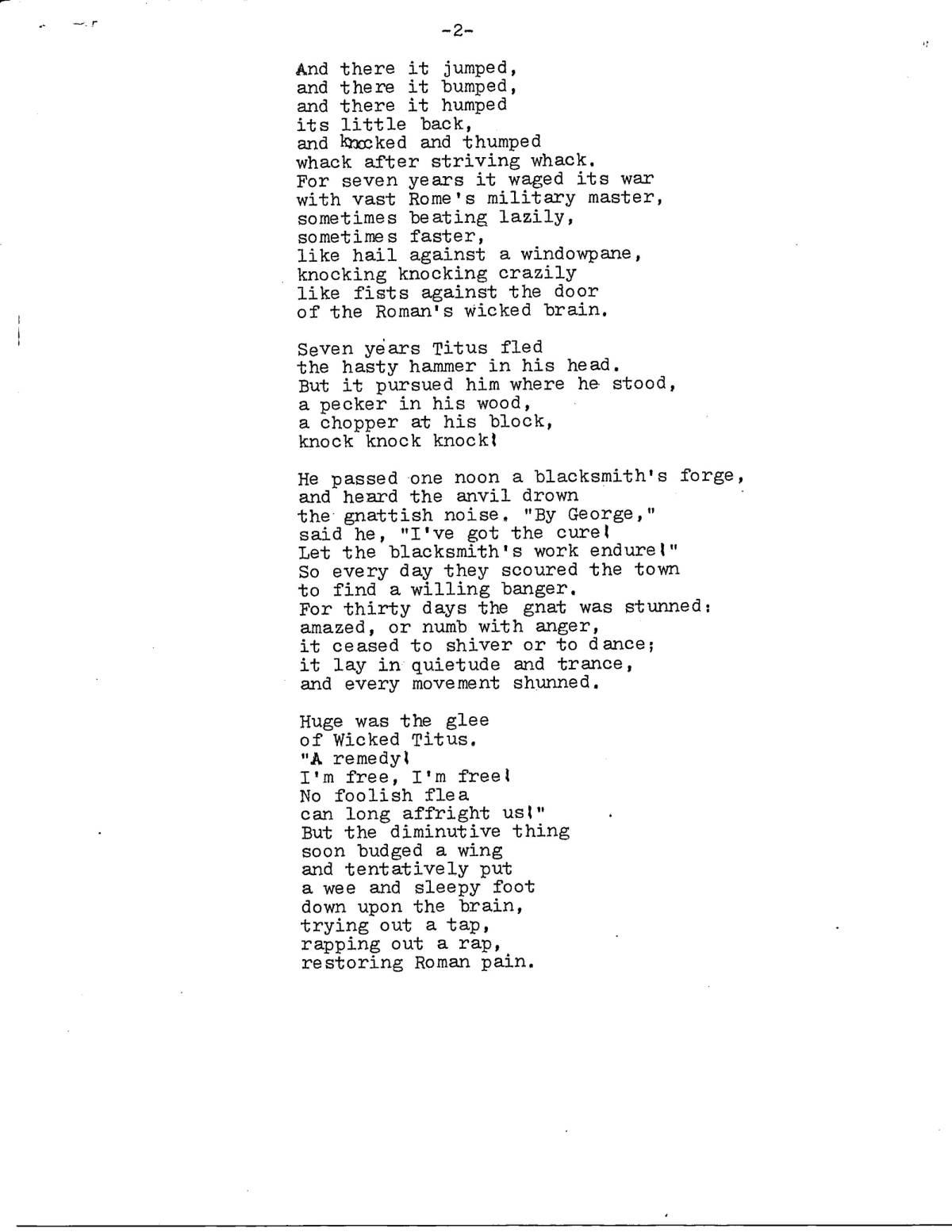
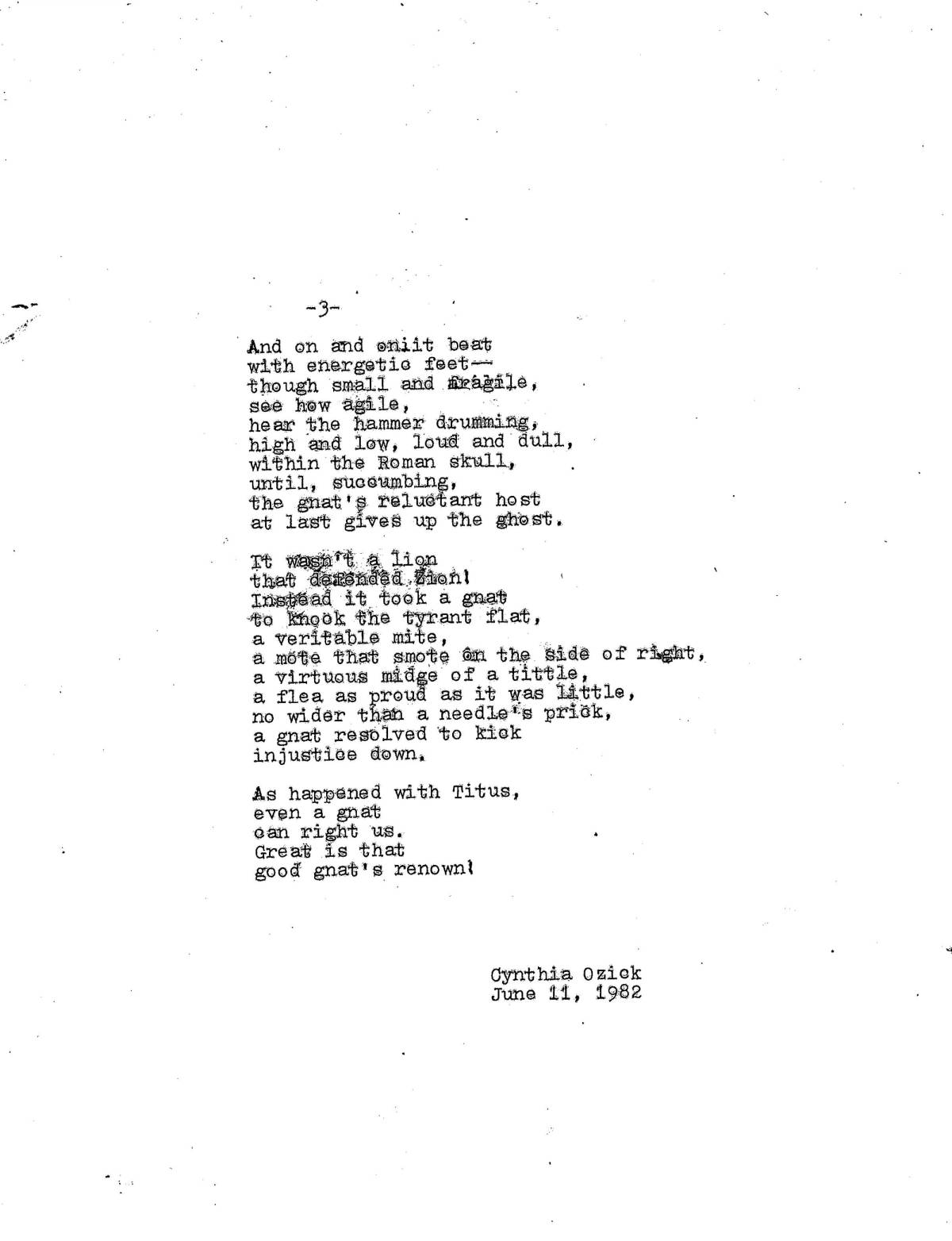
Wicked Titus (the name the Rabbis gave),
Commander-in-Chief
of Roman arms,
strategist of bloody harms,
took Jerusalem in fief,
razed the Temple to its grave,
and Zion brought to grief.
The flame of the Ark
brutally he blew to dark
shaped of its tapestry a sleeve,
loaded it with loot.
For holy Zion, no reprieve.
Then homeward went the Roman boot.
At sea, up sprang a gale.
It shook the Roman masts to sticks.
“This God of theirs can play these tricks
on water, but the land is dry,
On land He can’t prevail.
Just let Him try!”
Thus spake that master of detritus,
Zion’s ruin, Wicked Titus.
Then came a Voice, a Voice on high,
trembling like a spider on a thread
let down from the mighty sky.
“Sinner,” it said,
“shake thou in dread.
Soon your brain
will entertain
a tiny jot, a living dot, a very gnat.
Its home will be your head.
Make what you will of that.”
Now through the warrior’s nostril skipped
the lightfoot tidy tread
of a speck so small it seemed not there.
Its legs were thinner than a hair.
It tickled and it whipped;
it meant to tease,
though ill at ease
in the cavern of the nose.
Upward then it rose
on wings infintesimal,
a fluttering decimal,
until it could attain
the barren plain
that spread before
the inmost door
of the Roman’s nasty brain.
And there it jumped,
and there it bumped,
and there it humped
its little back,
and knocked and thumped
whack after striving whack.
For seven years it waged its war
with vast Rome’s military master,
sometimes beating lazily,
sometimes faster,
like hail against a windowpane,
knocking knocking crazily
like fists against the door
of the Roman’s wicked brain.
Seven years Titus fled
the hasty hammer in his head.
But it pursued him where he stood,
a pecker in his wood,
a chopper at his block,
knock knock knock!
He passed one noon a blacksmith’s forge,
and heard the anvil drown
the gnattish noise. “By George,”
said he, “I’ve got the cure!
Let the blacksmith’s work endure!”
So every day they scoured the town
to find a willing banger.
For thirty days the gnat was stunned:
amazed, or numb with anger,
it ceased to shiver or to dance;
it lay in quietude and trance,
and every movement shunned.
Huge was the glee
of Wicked Titus.
“A remedy!
I’m free, I’m free!
No foolish flea
can long affright us!”
But the diminutive thing
soon budged a wing
and tentatively put
a wee and sleepy foot
down upon the brain,
trying out a tap,
rapping out a rap,
restoring Roman pain.
And on and on it beat
with energetic feet—
though small and fragile,
see how agile,
hear the hammer drumming,
high and low, loud and dull,
within the Roman skull,
until, succumbing,
the gnat’s reluctant host
at last gives up the ghost.
It wasn’t a lion
that defended Zion!
Instead it took a gnat
to knock the tyrant flat,
a veritable mite,
a mote that smote on the side of right,
a virtuous midge of a tittle,
a flea as proud as it was little,
no wider than a needle’s prick,
a gnat resolved to kick
injustice down.
As happened with Titus,
even a gnat
can right us,
Great is that
good gnat’s renown!
-Cynthia Ozick
June 11, 1982
Cynthia Ozick is the author of, most recently, Critics, Monsters, Fanatics, and Other Literary Essays. She is a recipient of the National Book Critics Circle Award and was a finalist for the Pulitzer Prize, the National Book Award, and the Man Booker International Prize. Her writing has appeared in The New Republic, Harper’s, and elsewhere. She lives in New York.
